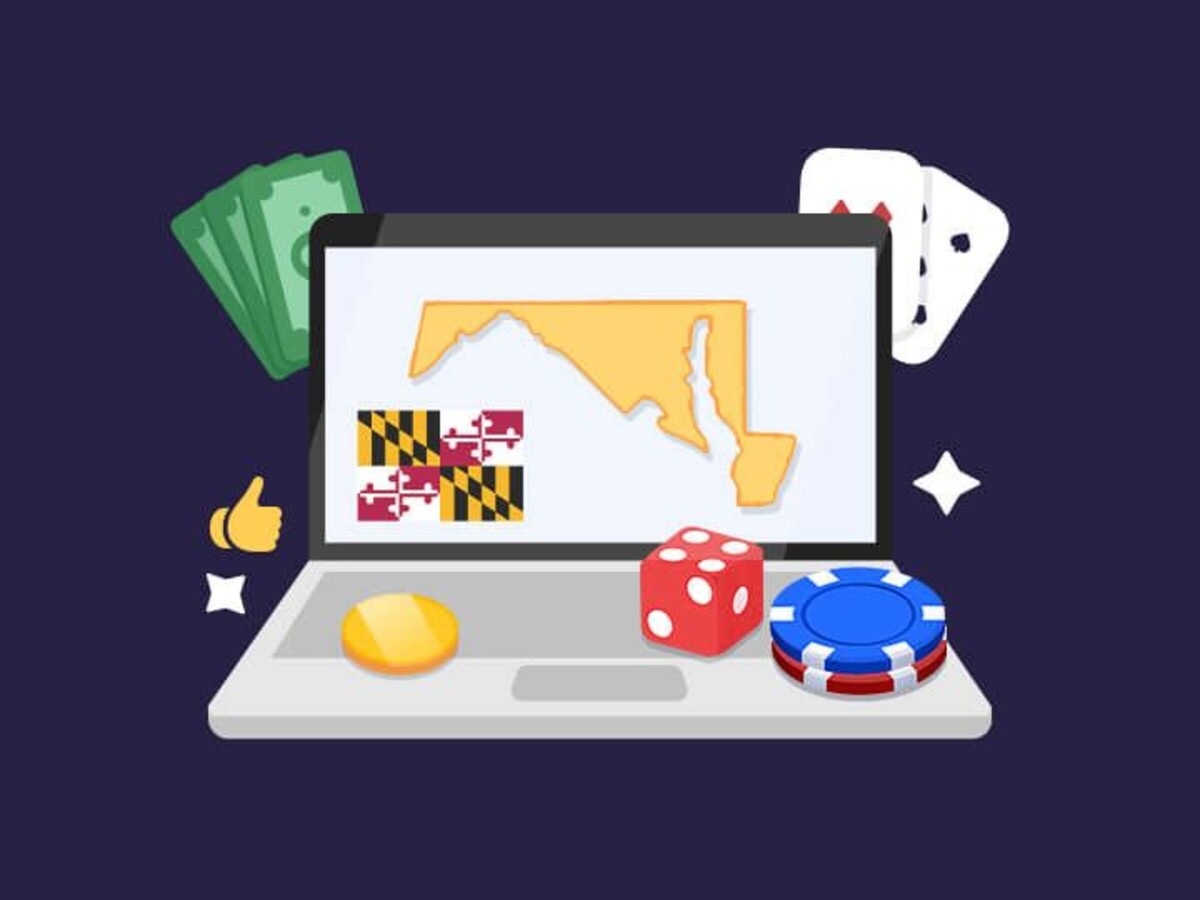Image

New study finds uptick in problematic gambling since legalization of online sports betting

As online sports betting rises in popularity, a new report also shows an uptick in disordered gambling behavior. (Photo by Danielle E. Gaines/Maryland Matters)
There’s been an uptick in disordered gambling behaviors since Maryland legalized online sports betting, which problem gambling experts call a “concerning” trend that could worsen if newer modes of gambling become more available.
“Statewide Gambling Prevalence in Maryland: 2024” is the newest edition of legislatively mandated reporting on gambling trends over the years. But it’s the first report since mobile sports betting became available in the state.
The survey of about 3,600 Marylanders was conducted from May to July 2024 and found that about 5.7% of those who responsed had exhibited disordered gambling behavior over the previous year. That’s an increase from findings in the previous edition of the report, in 2022, when just 4% of respondents exhibited disordered gambling behavior.
The uptick in disordered gambling is “concerning” according to Jessica P. Brown, research director at the Maryland Center of Excellence on Problem Gambling at the University of Maryland School of Medicine, which created the report.
The report does not outright condemn the move to online sports betting, but Brown said that the center plans to “continue to track these patterns.”
According to the 2024 survey, nearly 90% of Marylanders have tried gambling at least once in their lives, which is largely consistent with previous survey years. A majority of respondents showed “low-risk” gambling behavior.
Disordered gambling is defined as “persistent and recurrent problematic gambling behavior that leads to clinically significant impairment or distress.” It can often coincide with substance use disorders and have negative impacts on a person’s social and family life.
The report finds that among those exhibiting disordered gambling, 66.2% were male. The report also said that people with disordered gambling behavior were “more likely than other Maryland adults to be Black or African American, have Hispanic or Latino ethnicity, have a high school diploma or less, and be unmarried.”
“Some of the sociodemographic groups affected most by disordered gambling behavior in Maryland are also marginalized with respect to economics, substance use, and access to health care,” the report says.
What’s new in the 2024 report is that more people have been using online sports betting platforms.
According to the 2024 survey responses, about 12% of respondents participated in online or mobile sports betting over the previous year– a jump up from the 3% who reported using online or mobile sports betting in 2022.
The 2022 study was conducted earlier in the year, when “sports gambling was available at casinos but not yet on mobile or online platforms” – though Marylanders may have participated through neighboring states or used offshore online sportsbooks.
Sports betting in general has also increased, with 17% of 2024 responses saying that they’ve placed bets on sports in the previous year — up from 14% from the 2022 responses.
“One major difference in the legal availability of gambling in the state … was the legalization of online sports betting,” Brown said Wednesday during a virtual discussion on the new data. “The current prevalence study … is the first study data that are available since that change.”
“Here we have the proportion of Maryland adults who have placed online sports bets … and it’s clear to see that this has grown considerably since the legal availability in late 2022,” she said.
The report found that almost 15% of Marylanders who had gambled on sports in the past year met criteria for “disordered gambling.”
While online sports betting has increased in recent years, the primary methods of gambling are still through lotteries and brick-and-mortar casinos.
The report did find an increase of people with disordered gambling habits reaching out for help and resources to curb their gambling. The report says that 13% of those with a history of disordered gambling have at some point sought help for their struggles, up from 7.5% in the 2022 report. But that still means most people with disordered gambling do not seek resources to help them.
YOU MAKE OUR WORK POSSIBLE.
The report says that more accessible gambling and the introduction of newer options such as iGaming could further shape the gambling environment.
“Over the coming years, recent modes of gambling (such as online/mobile sports gambling) may become more entrenched, and new modes (such as online casino-style iGaming) may become legally available,” the report says. “Future prevalence studies will track Marylanders’ gambling behavior and its outcomes in this changing landscape.”
During the annual legislative session, the Center of Excellence on Problem Gambling opposes bills that facilitate gambling habits, while supporting legislation that boosts awareness and resources for gambling addictions.
A fight that may reemerge in the upcoming session is a push to introduce iGaming in Maryland. Blair Inniss, the center’s government relations manager, said they plan to push back against any attempts to legalize it in the upcoming session.
“iGaming is generally defined in these bills as casino-style gambling through the internet,” she said. “A simpler way I like to describe it is ‘casinos on our cell phones.’”
“We already know that 24/7 online access to gambling is a public health concern,” Inniss said. “There are a variety of national and international studies that reiterate that people who gamble online are as much as eight times more likely to report compulsive gambling problems and addictive behavior than traditional brick-and-mortar casino players.”